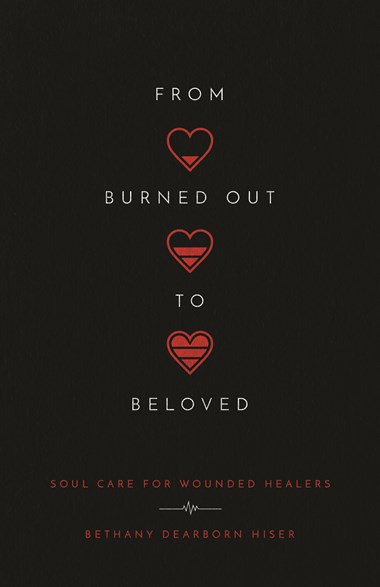From Self-Care to Soul Care

Social workers, church leaders, ministry workers, therapists, foster parents, medical professionals, and teachers are often passionately serving our communities, yet all too often we are burning out and leaving the work. As noted in a 2018 Leadership Resources article, “[Fifteen hundred] pastors leave the ministry each month due to moral failure, spiritual burnout, or contention in their churches.”
What if instead of busyness being the barometer, we encouraged one another to work with greater self-awareness and to live grounded and at peace?
What if we acknowledged our wounds instead of pretending they don’t affect us?
What if we reckoned with how we have experienced oppression or privilege and with how that has diminished our view of ourselves and others?
What if we honestly engaged with the internal beliefs and values that distort our self-perception and gave ourselves permission to thrive?
What if we served out of a deep certainty that we—and all people—are beloved, just as we are, regardless of how we change or help others to change?
The remedy for burnout is to go down and rest, to explore our barriers, and connect with the deep well of God’s presence within us.
FROM SELF-CARE TO SOUL CARE
Many social workers would say that self-care is important, but in practice we feel that it’s one more thing to do with no time to do it. Institutional encouragement to practice self-care is often ineffective without the social worker having an understanding of secondary trauma and other internal barriers.
I’ve created numerous self-care plans at various workshops. Usually they involve looking at what the participants lack and creating plans to change that. For example, at one group session, I was invited to look at my life as a circle, with various areas that need tending to, such as physical, emotional, psychological, spiritual, and relational. We colored in each pie wedge to the degree we felt fulfilled in that area. Next we described what activities we needed to do to fill each piece up.
At a training for clergy and spiritual teachers on healthy boundaries, we used the Self-Care Inventory, which ranged from “I play a musical instrument and practice regularly” to “I eat most evening meals with my partner/family.” Not only were these exercises based on privilege, but as I looked at my blank inventory and empty pie wedges, they also left me feeling inadequate and exhausted. How could I possibly find the time or energy to do what it would take to fill up all those areas? Where would I find the resources?
Although such reflection has sometimes been helpful, more often than not I’ve felt unmotivated to change—or changing felt too hard and out of reach. Deeper soul care is needed to establish our identity as beloved, to explore the beliefs that drive our unhealthy behaviors, and to equip us to take care of ourselves.
The practice of holistic, trauma-informed soul care tends to the whole self in order to be grounded in God, to thrive, and to love others as we love ourselves. It involves knowing who we are, how we’re impacted by secondary trauma, and why we must be on an ongoing journey toward recovery and healing.
Taking care of ourselves is essential for our well-being as beloved children of God, allowing us to be effective and resilient, loving people instead of using those we serve to support or enhance our own sense of worth.
We are beloved children of God.
God loves us not for what we do or don’t do. We can’t do anything to make God love us more or less. We are deeply loved. Living out of our belovedness involves learning to receive love and to extend care to ourselves. We’re invited to know ourselves, our motivations for our work, our desires, and the ways our unmet needs play out in how we engage the world.
Our inner beliefs and perceptions affect our care for others and ourselves.
The beliefs we hold about ourselves can drive us to burnout. Without our awareness, false beliefs drive our feelings of anger, shame, guilt, or unworthiness. We end up less able to care for the person in front of us and more likely to be depleted due to stress and lack of rest. When such patterns continue, they often lead to utter exhaustion and even symptoms of post-traumatic stress. Some feel so disillusioned and disheartened that they leave their work or ministry—and even their faith. Understanding our beliefs is an important step to free us from shame and to help us move toward wholeness and resilience.

As we work with people in the midst of trauma, taking care of ourselves is not optional; it is essential.
Soul care is for all people, not just those who feel weak or who are spiritually oriented. Secondary trauma—the emotional and physiological toll of hearing about another person’s first-hand experience of trauma—is a well-documented phenomenon that can affect anyone. It’s compounded when we carry our own personal trauma as well. Understanding its effect can increase our compassion for ourselves, our awareness of how we are being impacted, and our motivation to discover sustainable practices.
Being rooted in God and practicing holistic soul care benefits us as well as those around us.
Self-care that engages spiritual practices has been shown to prevent burnout and improve coping strategies. When we partner with God, honor healthy boundaries, and commit to rhythms of rest, we are freer and healthier in our love and care for people. We live, move, and breathe knowing we are held securely in God’s love, and we are able to love others out of a place of fullness rather than emptiness and striving. We tap into God’s abundance and feel inspired by our work. We know we are worthy of care ourselves, regardless of what impact we have.
Doing inner work is never easy. We prefer quick solutions and easy answers. Who wouldn’t rather skip the hard work of recovery? Yet growth involves moving through barriers and wading into dark places, not skipping around and pretending they aren’t there. But tending to our souls isn’t just up to us. God is the restorer of our souls who might make us lie down sometimes. God knows what we need and values our restoration, our healing, and our transformation.
Adapted from From Burned Out to Beloved by Bethany Dearborn Hiser. Adapted from Chapter One, “Trauma-Informed Soul Care.” Copyright (c) 2020 by Bethany Lynn Dearborn Hiser. Published by InterVarsity Press, Downers Grove, IL. www.ivpress.com
On Thursday, March 11, 2021, join the Humanitarian Disaster Institute (HDI) for a free online event on assessing and addressing five core emotional, spiritual, and practical needs that HDI has identified as critical in the wake of trauma. From Burned Out to Beloved and other IVP titles will be available at a discount for Summit attendees.
The Better Samaritan is a part of CT's
Blog Forum. Support the work of CT.
Subscribe and get one year free.
The views of the blogger do not necessarily reflect those of Christianity Today.






















